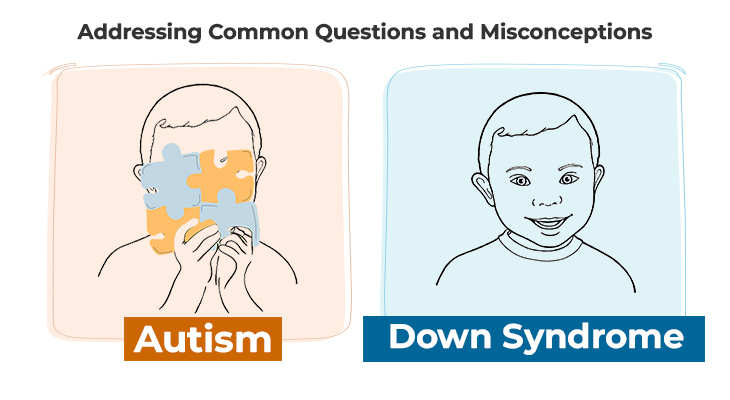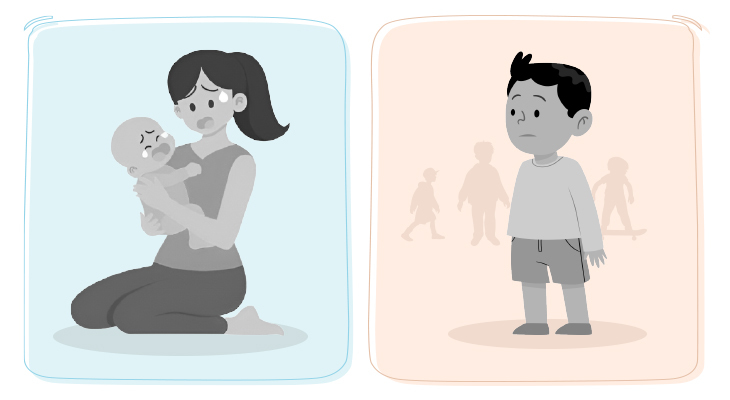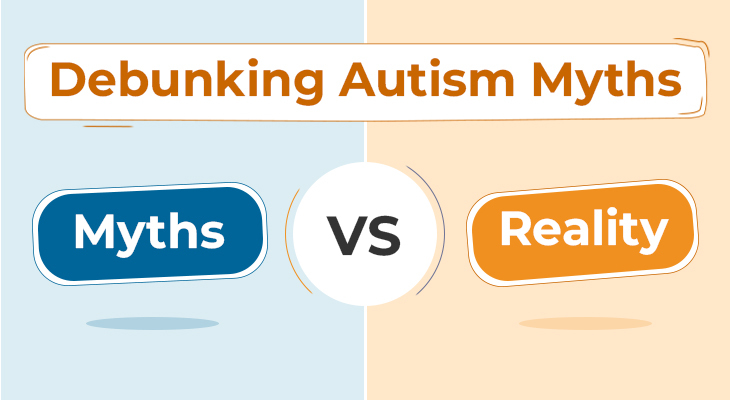
Download Download & share this Knowledge card in your network [Free Download]
Introduction
Individuals with Autism Spectrum Disorder commonly experience Social Anxiety. It is thought that rates of Social Anxiety in the ASD population may approach 50% in total. This rate is significantly higher than that of the general population.

Download Download & share this infograph card in your network [Free Download]
Social anxiety may be characterized by some of the following symptoms:
- Worry about embarrassing or humiliating yourself
- Fear of situations where you may be judged negatively
- Intense fear of interacting or talking with strangers
- Fear that others will notice you look anxious
- Fear of physical symptoms that may cause you embarrassment, such as blushing, sweating, trembling, or having a shaky voice
- Avoidance of doing things or speaking to people out of fear of embarrassment
- Avoidance of situations where you might be the center of attention
- Anxiety in anticipation of a feared activity or event
- Intense fear or anxiety during social situations
- Expecting the worst possible consequences from a social situation
A large number of these symptoms in Social Anxiety also run in parallel with those that have ASD. Clearly, there is significant overlap between Social Anxiety and ASD.
As with social anxiety, many individuals with autism may struggle to understand and interpret social cues, leading to difficulty in forming and maintaining relationships. Additionally, past experiences of bullying or social exclusion may contribute to a heightened sense of self-consciousness and social anxiety. This ultimately has a compounding effect exacerbating social anxiety symptoms.
Oftentimes, it can be difficult to differentiate between social anxiety and autism. Eye contact, social motivation, and other behavioral differences can provide clues, but further assessment is needed to determine a clear diagnosis. Understanding the overlap between these two conditions is crucial to ensure that individuals receive the appropriate support and treatment. Both social anxiety and autism are complex conditions that require a multi-disciplinary approach for effective management and support. This includes assessment and treatment from professionals trained in both areas, such as psychologists, therapists, and occupational therapists, who can help to address the specific needs of each individual.
Treatment for social anxiety in individuals with autism may involve a combination of therapy and medication. Cognitive-behavioral therapy (CBT) can help teach individuals with autism how to recognize and manage their anxieties, while medication may be used to manage symptoms of anxiety. It’s important to note that every person with autism is unique and treatment should be tailored to their individual needs and circumstances.
Conclusion
Social anxiety is a common issue for many individuals with autism and can have a significant impact on daily life and well-being. Understanding the factors that contribute to social anxiety in autism, and providing effective treatment, is important in helping individuals with autism lead fulfilling and happy lives.
Did You Know? Folate Receptor Autoantibodies (FRAAs) may impede proper folate transport.
Folate (vitamin B9) is very important for your child’s brain development!
During pregnancy, it helps prevent neural tube defects and plays a big role in forming a normal and healthy baby’s brain and spinal cord. Folate also helps cells divide and assists in both DNA and RNA synthesis.
Emerging research suggests that the presence of FRAAs negatively impacts folate transport into the brain.
- Recent studies reveal that a large subgroup of children with autism spectrum disorder (ASD) have FRAAs.
- This suggests that a possible disruption in folate transport across the blood-cerebrospinal fluid (CSF) barrier may potentially influence ASD-linked brain development.
- Screening for the FRAAs in your child should be part of your early intervention strategies.
Is there a test for identifying Folate Receptor Autoantibodies (FRAAs)?
Yes, there is a test – The Folate Receptor Antibody Test (FRAT®) has emerged as a diagnostic tool for detecting the presence of FRAAs.
It is important to screen at an early age or as soon as possible as there may be corrective measures available. Please consult your physician for further information.
To order a test kit, click on the button below.

For information on autism monitoring, screening and testing please read our blog.



